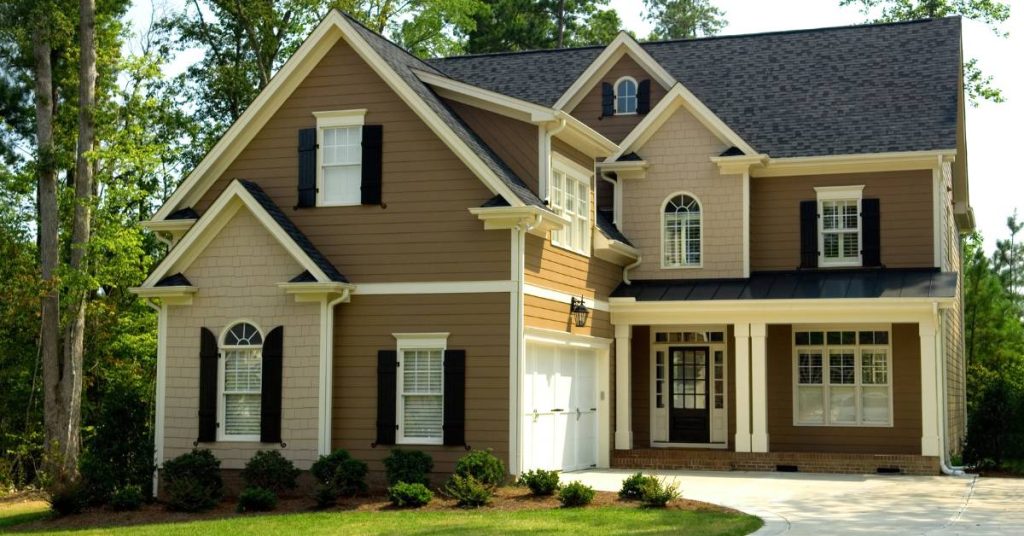Are you interested in purchasing a HUD home and wondering if it’s possible to finance it with an FHA loan? You’re in luck because the answer is a resounding yes!
FHA loans are a popular financing option for homebuyers, and they can also be used to purchase HUD homes. But what exactly does the FHA classify as a HUD home, and what are the requirements for using an FHA loan to buy one?
This guide will discuss the ins and outs of purchasing a HUD home with an FHA loan, including the eligibility requirements and application process.
So, let’s dive in and explore how to make your dream of owning a HUD home a reality.
What Are FHA Loans?
FHA loans are a type of government-backed mortgage for first-time homebuyers with limited financial resources. The loan program offers refinancing, renovation loans, and purchasing with renovation loans through the FHA 203(k) loan.
The FHA loan’s lenient eligibility requirement means that you can qualify for a mortgage even if you have a lower credit score or a smaller down payment, making them super ideal for many first-time home buyers.
Understanding The HUD Home Buying Process

A HUD home is a foreclosed property owned by the U.S. Department of Housing and Urban Development (HUD). These homes were originally financed with FHA-insured mortgages but have been foreclosed due to the loan default.
They are typically sold through an online auction and can be an affordable option for homebuyers looking for a good deal. Oftentimes, they may require repairs or renovations.
Here is an overview of the HUD home-buying process:
- Find a HUD home: You can search for HUD homes on the HUD website. You can search by location, price, number of bedrooms, and other criteria.
- Get pre-approved: Prior to making an offer on a HUD home, getting pre-approved for a mortgage is crucial. You can work with a lender of your choice to get pre-approved.
- Find a real estate agent: You’ll need to work with a HUD-approved real estate agent to submit an offer on a HUD home. You can find a registered agent on the HUD website.
- Submit an offer: Your real estate agent will help you submit an offer on a HUD home. HUD homes are sold through an online bidding process. You’ll need to submit your bid through the HUD website.
- Wait for a response: The HUD will review all bids and select the highest one that meets their criteria. If your offer is accepted, your real estate agent will be notified and guide you through the next steps.
- Complete the purchase: Once your bid is accepted, you must work with a lender to complete the mortgage process. You’ll also need to have the appraisal.
- Move in: You can move into your new HUD home once everything is complete!
If you’re eyeing a HUD property in any of our service areas, give us a call we’d guide you through the above process; from finding the best home to moving in.
Qualifying for an FHA Loan to Buy A HUD Home
The FHA loan has credit and down payment requirements that you must meet to be approved for a loan.
For a HUD home, here are the qualifications:
- Credit rating: To qualify for an FHA loan, you’ll need a credit rating of at least 500. But, if yours is 580 or higher, you may qualify for a loan with a lower down payment.
- Down payment: The down payment needed for an FHA loan varies depending on your credit score and other factors. Typically, you’ll need to put down at least 3.5% of the home’s purchase price.
- Income requirements: FHA loans have flexible income requirements, but you must prove that you have a steady income source and can afford the mortgage payments. Generally, your DTI (debt-to-income) ratio should be no more than 43%.
Advantages of Buying A HUD Home With an FHA Loan

Supposing you qualify for an FHA loan and want to use it to finance the purchase of a HUD, what benefits are available to you?
Here are a few:
- Fixed interest rates: FHA loans come with fixed interest rates, which means your monthly payments will stay the same throughout the duration of the loan. This provides stability and predictability when it comes to your housing expenses.
- Lower credit rating requirements: If you have a credit rating of 580 and above, you can qualify for a loan with a 3.5% down payment.
- Low down payment: With an FHA loan, you can put down as little as 3.5%. This makes it easier for people with limited savings to become homeowners.
The table below summarizes the pros and cons of buying a HUD home with an FHA loan to help you easily compare and contrast:
| Pros | Cons |
|---|---|
| Lower down payment requirements, typically as low as 3.5% of the purchase price | HUD homes may require repairs or renovations, which can add additional costs |
| Lower credit score requirements, making it more accessible for buyers with less-than-perfect credit | HUD homes are typically sold “as is,” meaning you may be responsible for any repairs or renovations |
| More flexible debt-to-income ratios, allowing for a higher debt load compared to conventional loans | Limited availability and potential competition from other buyers, as HUD homes are often in high demand |
| Opportunity for affordable homeownership, as HUD homes are priced below market value | Potential for additional costs for repairs and renovations, which may impact the overall affordability |
| Opportunity for customization and equity-building, as HUD homes can offer the potential for increased value with improvements | Additional paperwork and processes involved in obtaining an FHA loan, which may require more time and effort |
Potential Challenges When Buying A HUD Home With an FHA Loan
Here are some of the potential drawbacks:
- MIPs (mortgage insurance premiums): FHA loans require you to pay MIPs. The MIPs protect the lender in case you default on the loan. The MIP can add significant costs to your monthly mortgage payment.
- Limited loan amount: FHA loans have a maximum loan amount, i.e. how much you can qualify for, that varies depending on the area in which you live. This means that if you want to purchase a more expensive home, you may be unable to do so with an FHA loan.
- Property condition standards: FHA loans require the property to meet specific condition standards. This means that if the property you are interested in is in poor condition, you may be unable to use an FHA loan to purchase it.
Frequently Asked Questions
How do you find HUD homes that are eligible for FHA loans?
Here are several ways to find HUD homes eligible for FHA loans:
- Attend HUD home auctions: HUD homes not sold via traditional channels may be sold at auctions. You can attend these auctions to bid on the properties and get a good deal.
- Consult a real estate agent: Real estate agents often have access to HUD homes yet to be listed on the HUD website. They can also guide the home-buying process and help you find the right property for your needs.
- Visit the HUD website: The HUD has a website where you can search for HUD homes that are available for sale. You can search by state, city, zip code, and price range.
How does the bidding process work for HUD homes?
The HUD bidding process works similarly to the home buying process above. To reiterate, here’s a step-by-step guide on how bidding works for HUD homes:
- Find an eligible HUD home: You can search for available homes on the HUD website or through a licensed real estate agent.
- Hire a licensed real estate agent: They can help you with the necessary paperwork and provide guidance on the bidding process.
- Get pre-approved for an FHA loan: To bid on a HUD home, you must be pre-approved for an FHA loan. Contact a lender and start the pre-approval process.
- Place your bid: Once you find a HUD home you want to purchase; you must submit a bid through your real estate agent. Your offer will include the purchase price, any contingencies, and the amount of your earnest money deposit.
- Wait for the results: After submitting your bid, you will need to wait for the results. HUD will review all bids and choose the best offer based on various factors, including the purchase price, the buyer’s financial stability, and the property’s condition.
- Sign a purchase agreement: If your bid is accepted, you must sign a purchase agreement and provide the earnest money deposit.
- Close on the property: Once all the necessary paperwork is complete and the loan is approved, you can close on the property and take possession.
What happens if your FHA loan application is not approved for a HUD home?
If your FHA loan application is not approved for a HUD home, review the reasons why your application was denied.
Common reasons include insufficient income, lower credit scores than the FHA loan credit requirements, or too much debt. Once you understand why your application was rejected, you can work on improving your financial situation and reapplying in the future.
Alternatively, consider other types of financing or properties. For example, you could look into conventional or government-backed loans, such as VA or USDA loans. Additionally, other properties may be available for sale in your area that meet your needs and budget.
Can you use an FHA loan for both the purchase price and renovations of a HUD home?
Yes, you can use an FHA loan, specifically the 203(k), to purchase and renovate a HUD home. The FHA 203(k) loan is designed to help you finance the purchase and renovation of a property. What’s more, the 203(k) loan can be used for minor and major repairs and structural improvements.
Should You Buy a HUD Home?
You now have a solid understanding of how to use an FHA loan to purchase a HUD home! Consider the pros and cons, then make a decision that aligns with your current financial situation.
The process can seem daunting initially, but it can be a great opportunity to purchase a home at a lower price and with a low down payment.
If you have more questions regarding how to buy a HUD home with an FHA loan, give us a call. We exist to make your home ownership dream a reality!






